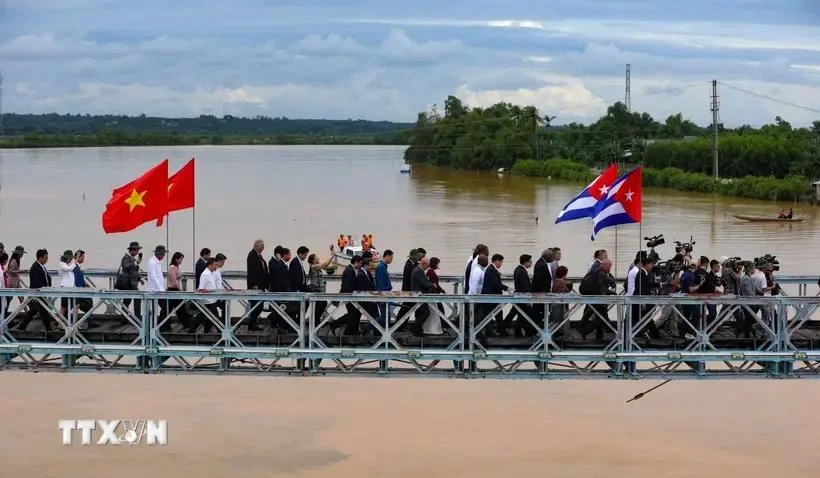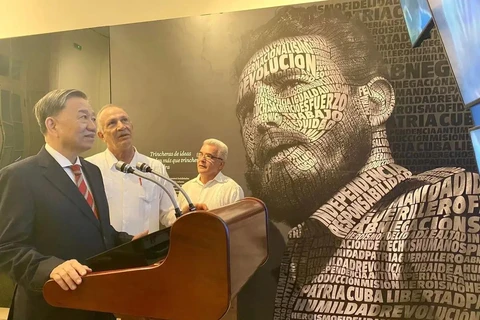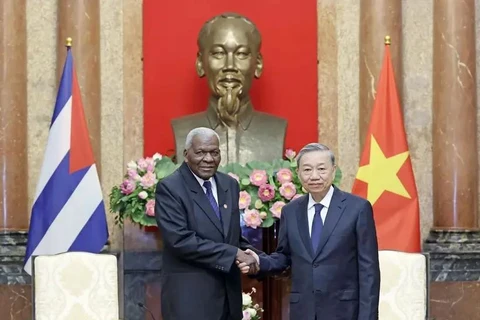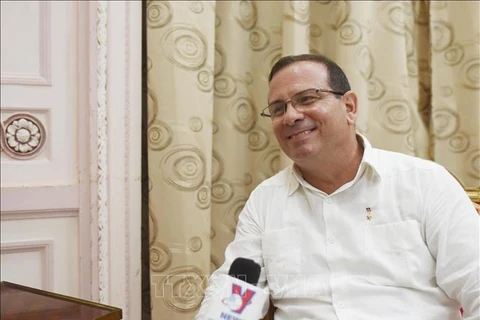
Mexico City (VNA) – Spanning over the past half-century and transcending the typical framework of bilateral relations, the bond between Vietnam and Cuba is a steadfast, transparent, mutually supportive, and fraternal connection withstanding geographical distance and historical changes, said an article published by Regeneración, the official media outlet of Mexico's ruling National Regeneration Movement (Morena).
This assessment was made as a state visit to Cuba by Party General Secretary and State President of Vietnam To Lam approaches. Veteran journalist Pedro Gellert, the author of the article, stressed that this visit marks To Lam's first to Cuba in his capacity as the Party and State leader and comes just before the 65th anniversary of the two nations’ diplomatic relations (1960-2025).
Gellert, who is also a media advisor for Morena, asserted that it is a clear demonstration of the highest level of political trust between the two nations and underscores the commitment of both governments and people to continually strengthen the special friendship forged by President Ho Chi Minh of Vietnam and Commander-in-Chief Fidel Castro of Cuba.
The author recalled that during Vietnam's national liberation struggle in the 1960s and 1970s, Cuba consistently led global solidarity movements in support of Vietnam’s just cause, providing invaluable and effective assistance.
Notably, Fidel Castro's declaration, “For Vietnam, Cuba is willing to shed its own blood!” made during a rally at Jose Marti Revolution Square in Havana in 1966, and his status as the first and only foreign leader to visit the liberated zone in South of Vietnam in 1973, became powerful symbols of support for the Vietnamese revolution and the enduring Vietnam-Cuba solidarity.
The article wrote that in response to this camaraderie, Vietnam has always extended special friendship, solidarity, and sincere cooperation to Cuba. In the early years following Vietnam’s Doi moi (Renewal) in 1986, Vietnamese people consistently supported Cuba, helping the nation navigate its challenging "Special Period" in the early 1990s. Numerous aid projects and cooperative initiatives were implemented, such as assisting Cuba in rice production to ensure food security.
Vietnam has also wholeheartedly shared its experiences in socio-economic development and international integration with Cuba, provided regular food aid and offered agricultural development expertise. Furthermore, the Southeast Asian nation has consistently demonstrated strong and unwavering solidarity with the Caribbean island country at various regional and international forums, particularly in advocating for the lifting of the unjust embargo imposed on Cuba for decades.
On a regional level, the special relationship between the sides has served as a reference point, helping bring Vietnam closer to other Latin American countries. Following the establishment of diplomatic relations with Cuba in 1960, Vietnam established similar ties with Chile in 1971 and Argentina in 1973. In the first five years after its reunification (1975-1980), the country established diplomatic relations with ten Latin American nations. During this period, Vietnam stood alongside its Latin American friends in their struggles for independence, democracy, and social progress.
The article noted that in this same era, Latin American countries not only strongly supported Vietnam's admission to the United Nations in 1977 but also assisted it in overcoming war consequences, expanding foreign relations, and resisting blockade and sanctions. Since the launch of the Doi Moi process in 1986, relations between Vietnam and Latin America have entered a new phase of comprehensive and robust development.
Over the past two decades, Vietnam-Latin America trade has surged 67-fold, from 300 million USD in 2000 to 20 billion USD in 2022. Vietnam has also implemented numerous investment projects in the 650-million-strong region, regarding such strategic sectors as energy, oil and gas exploration, and telecommunications./.






















